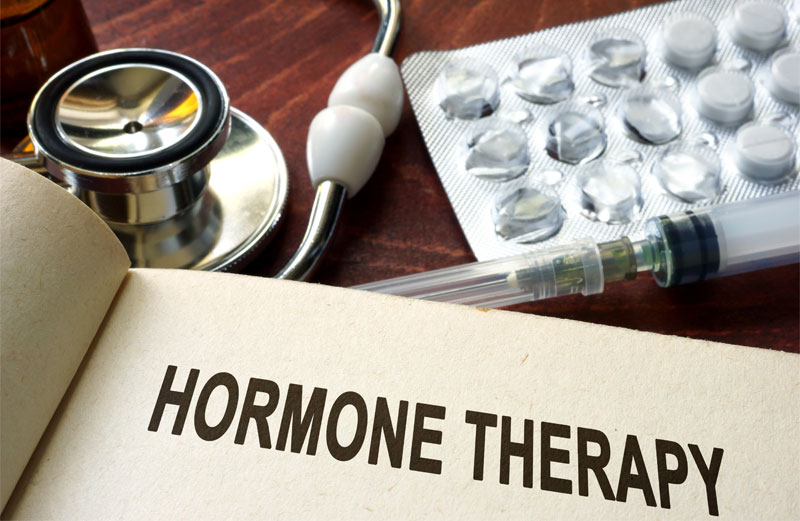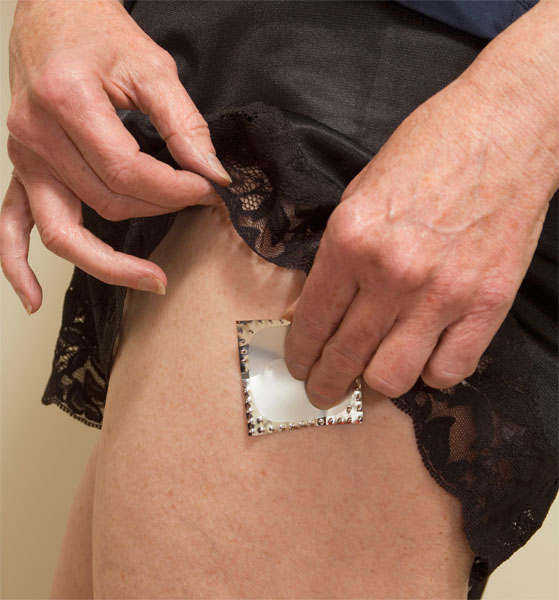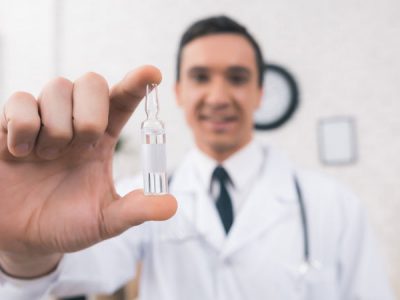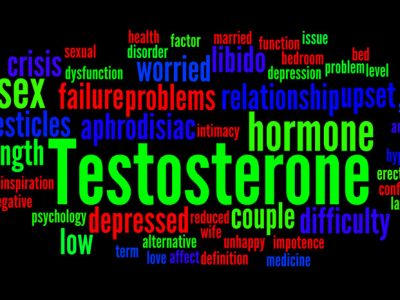- Home
- Growth Hormone
- Growth Hormone
- Growth Hormone Deficiency
- Growth Hormone Therapy
- Growth Hormone Injections
get startedThe Most Effective Hormone Replacement TherapiesWhat Is Testosterone Therapy for Women?
- Surprisingly enough, women as well as men benefit from testosterone replacement.
- Many of the most debilitating symptoms of menopause, can be alleviated with testosterone therapy for women.
- Adjunctive testosterone therapy should be considered whenever a woman is being prescribed hormone replacement therapy (HRT).
We all know that testosterone is a very critical hormone for men, but did you know that women also need testosterone, and women, like their male counter parts, can also benefit from testosterone therapy?
Hormone replacement therapy, or HRT, has been a standard protocol for aging women long before it came into vogue for men. Women have long been given HRT to help them cope with the hormonal changes that lead to the most debilitating conditions of menopause such as night sweats, hot flushes, and mood swings.
HRT for women for these symptoms has almost always involved the replacement of female hormones. However, the latest research seems to indicate that it is declining levels of testosterone, and not of estrogen and progesterone that is primarily responsible for these symptoms. Furthermore there is significant research to indicate that low testosterone levels in women is largely responsible for the lack of sexual desire, cognitive difficulties and loss of bone density that is typical of menopausal and post-menopausal women.
Women also need testosterone, and women, like their male counter parts, can also benefit from testosterone therapy.
Why Do Women Need Testosterone Therapy?
Even though testosterone is a “male hormone,” women produce and need testosterone too. And, like men, women’s testosterone levels also decline as they age. When we consider hormone replacement therapy (HRT) in women, we are usually thinking of replacing estrogen, to deal with menopausal symptoms. However, much of the latest research indicates that women too, can benefit from testosterone replacement, particularly those women who are already receiving HRT to combat the typical symptoms of menopause. In fact, current research seems to indicate that it is the drop in testosterone, and not estrogen that is responsible for many of the hormonal issues that women experience just before, during and after menopause.
Women obviously do not have testicles. In women, testosterone is produced by the ovaries, adrenal glands and fat cells. Along with regulating or stimulating hundreds of other biological functions in women, testosterone in women plays and immensely important role in reproduction and fertility. There are a lot of myths and misconceptions about giving testosterone therapy to women. One, is that it can have a masculinizing effect, and cause unwanted musculature, hair growth etc. However, when correctly prescribed, that is not a problem, because the goal of testosterone therapy for women is to give you just enough to return your testosterone levels to what is normal for your individual needs. Your personal normal level of testosterone would not cause such effects, so nor would properly administered testosterone replacement therapy.
In fact, as in men, testosterone therapy can strengthen bones and muscles, which can be very important in women beyond their child bearing years.
Another concern about giving testosterone therapy to women, is that it was believed at one time that it could increase a woman’s chance of getting breast cancer. Newer research not only indicates that this is an unfounded concern, but that T-therapy in women may even play a role in preventing breast cancer.
Current research indicates that it is the drop in testosterone, and not estrogen, that is responsible for many of the hormonal issues that women experience just before, during and after menopause.
What Are the Benefits of Testosterone Therapy for Women?
Testosterone therapy is a clinically proven way for women who are suffering from the impact of declining testosterone levels to improve their quality of life.
Women will rarely be given testosterone therapy by itself. Testosterone therapy will almost always be added to HRT that is already being given to a female patient. In fact, women seem to benefit greatly from skin patches or subdermal pellets that are designed to provide low-dose testosterone therapy along with estrogen replacement. This kind of combo therapy has been shown to greatly reduce the incidence of hot flashes, mood swings, and also seems to specifically help with the sexual wellness issues typical of menopause such as a drop in libido, vaginal dryness, or painful intercourse.
Testosterone replacement therapy can take several different forms, depending on your specific diagnosis and needs. These can include: pellets, injections, skin- patches, creams, lozenges, or any combination thereof. Your physician will decide what testosterone therapy program is best for you and your lifestyle.
The safest and most effective form of testosterone replacement therapy for women uses bioidentical hormones. Bioidentical hormones are exact duplicates on the atomic and chemical level, as the hormones normally produced by your body. Created from all natural sources, bioidentical hormones are a safer and more effective form of testosterone therapy. Hormone therapy with bioidentical hormones usually has a lower risk of most of the negative side effects associated with their synthetic counterparts.
In addition, bioidentical testosterone therapy for women:
- Encourages heart health
- Helps prevent osteoporosis by improving bone density
- Fights fat
- Increases muscle strength
- Improves mood
- Improves sleep
How to Start Testosterone Therapy for Women
If you want to achieve the many benefits of testosterone therapy, you must find an experienced doctor who not only specializes in HRT for women, but recognizes the additional value of testosterone therapy in women.
A blood test is the most accurate way to determine your testosterone level along with the levels of your other hormones. If your testosterone blood test reveals that your testosterone level is indeed low, you will likely have testosterone therapy added to your HRT regimen.
While any doctor can write your prescription for testosterone therapy, it is best to seek your testosterone treatment from a practitioner, or clinic that specializes in hormone replacement therapy (HRT) for women. Testosterone is not the only critical hormone that declines as you age. Any woman who is suffering from the symptoms of low testosterone, will likely have a growth hormone deficiency as well. Growth hormone therapy has also been shown to have many benefits for women, particularly as regards bone health and the prevention of osteoporosis
All hormones work together to keep your body running at its best. A doctor who specializes in HRT for women, will be able to evaluate all of your other hormones, and be able to suggest and prescribe additional treatments such as growth hormone therapy, to keep you looking feeling and performing like the woman you deserve to be!
Testosterone therapy is a clinically proven way for women who are suffering from the impact of declining testosterone levels to improve their quality of life.
read this next
Testosterone Therapy for Men
Testosterone therapy for men is a safe and effective way to return men who are suffering from low testosterone to being their personal best.…read moreHow to Start Testosterone Therapy
Testosterone therapy is the safest and most effective treatment for men suffering from low testosterone, also known as low T. Have you heard of…read moreDoctors Who Treat Men With Low Testosterone
If you are a man between the ages of 35 and 65, and are not feeling yourself lately, and if you find that you…read more - Growth Hormone Therapy
































